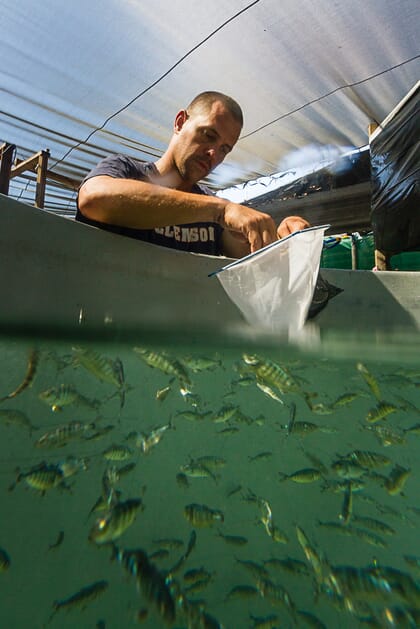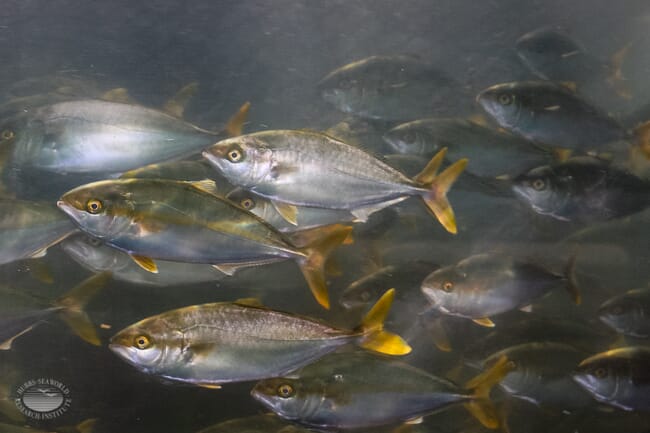
© Hubbs-SeaWorld Research Institute
Led by scientists at Hubbs-SeaWorld Research Institute (HSWRI), the study also revealed that algal oil produced by Veramaris can produce fish with levels of two important omega-3 fatty acids - DHA and EPA - roughly three times higher than in fish fed fish oil.
These findings, published in the journal Aquaculture Research, put scientists steps closer to growing healthier and more sustainable seafood by replacing wild-caught fish in aquaculture feed.
Typical aquaculture feed relies on the inclusion of fishmeal and fish oil derived from wild fish such as sardines, anchovies and menhaden, known as forage fish. In 2018, roughly 18 million tons of wild forage fish were reduced to fishmeal and fish oil for use in animal feed, including pet food. Removing these fish from the ocean can decrease food available for other species in the marine food chain, such as seabirds, marine mammals such as whales, seals and dolphins and commercially important fish such as salmon, tuna and cod.
“These results show the potential for this species to be reared on fishmeal and fish-oil free diets,” said Kevin Stuart, a research scientist at HSWRI and lead author of the study. “More research needs to be done to make these diets cost effective for growers, but the potential is there to advance sustainable aquaculture.”
In HSWRI’s 64-day feeding trial, the researchers tested three diets formulated without wild fish ingredients against a control diet—containing fishmeal and fish oil—on juvenile California yellowtail. Upon completion of the study, the fish were analysed for general body composition (moisture, protein, fibre and ash content) and fatty acid levels in their tissue to evaluate the fish growth and fillet quality of each diet.
The researchers found significantly higher DHA-EPA fatty acid levels in fish fed the diet containing Veramaris marine algal oil, which contains naturally high levels of these omega-3s.
These results show that Veramaris natural marine algal oil can fully replace fish oil in the diet of juvenile California yellowtail without affecting growth or survival, and at the same time provide higher levels of DHA and EPA, two essential nutrients needed for early brain development and linked to improved cardiovascular health in humans.

© Hubbs-SeaWorld Research Institute
In previous studies on Pacific white shrimp (Litopenaeus vannamei), channel catfish (Ictalurus punctatus), rainbow trout (Oncorhynchus mykiss) and Atlantic salmon (Salmo salar), scientists have observed similar or better growth and higher levels of omega-3 fatty acids in fish fed algal oil when compared to those fed fish oil.
Although the diets free of wild fish ingredients resulted in slower fish growth than the fishmeal-fish oil control diet, the pattern of growth—600 percent increase in weight during the study—was still excellent and suggests a strong potential for full fishmeal-fish oil replacement for this species with continued research, said the authors.
Aquaculture, the world’s fastest growing food sector, will require an estimated 37.4 million tons of feed by 2025 to meet the global demand for farmed seafood. With wild fish populations declining worldwide, more “fish-free” ingredients in aquaculture feeds will be required to meet future seafood demand and enhance sustainability.




